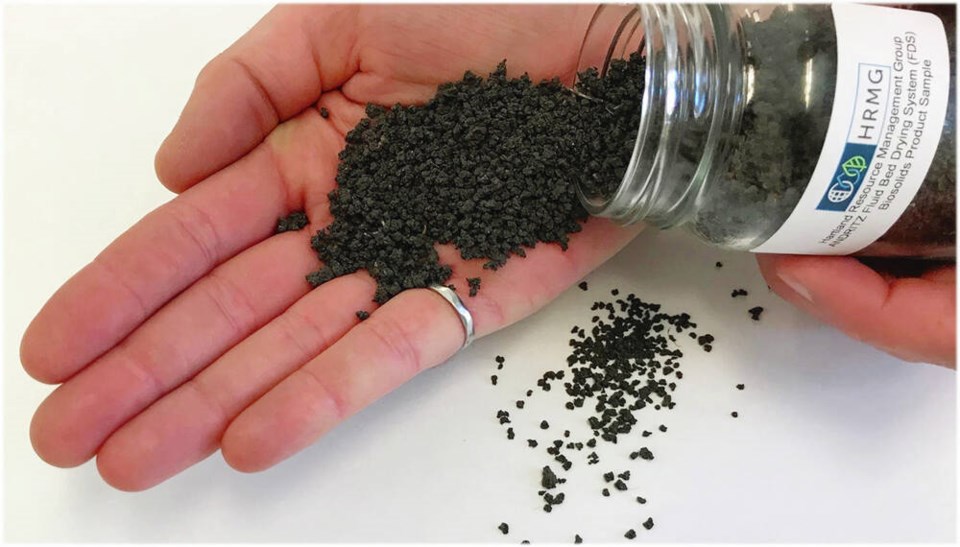Capital Regional District board chair Colin Plant has called a special meeting for Jan. 31 to review the public consultation process for long-term management of biosolids, after concerns were expressed by the public and board members.
Plant and Esquimalt Mayor Barb Desjardins, chair of the district’s environmental services committee, met Wednesday with staff, who have been told to report on the process. Public feedback began Jan. 11 and is scheduled to run until March 6.
The report will explain how information and survey questions were drawn up, Plant said Wednesday.
“It will be up to the board to determine next steps.”
The province requires the CRD to submit a long-term plan for biosolids management by the spring. Public feedback is required.
Biosolids are created from the region’s wastewater treatment system, but the region does not currently have anywhere to send them.
A plan to truck them to a cement kiln in Richmond appears to have fallen through. Some were sent to remediate a quarry near Cassidy, outside of Nanaimo, but the limit of how much can go there has been reached.
The district is largely sending biosolids to the Hartland Landfill, something it isn’t supposed to do because the province requires they have a beneficial use.
Early last year, the CRD board amended its rules to allow biosolids to be applied in the short term to non-agricultural lands, although that has not happened in the capital region. The motion was passed as part of a discussion about sending biosolids to an old quarry near Nanaimo to be used in rehabiliation of the site.
In the meantime, the district’s survey will remain on the website, Plant said. The survey is anonymous but those wanting to subscribe for updates can submit email addresses.
Both Plant and Desjardins declined to comment on the quality of the information and survey.
“I have heard from a couple of directors who had some concerns and I’ve heard from residents who had concerns,” Plant said.
Desjardins said: “It is an information report to the board but, of course, anything can happen coming out of that through board direction. We have definitely heard some significant concerns around the consultation information that has been provided. So it is really making sure that all of the board get a chance to hear how this information was pulled together.”
Biosolids is a divisive issue at the board table and Plant said members want more detail about the process now underway.
He does not know if any director is planning a motion to change the survey.
The district aims to hire a consultant to stage a pilot project showing thermal-processing possibilities, though that could take several years to get going.
Phillippe Lucas, co-founder of Biosolid Free B.C., wants the CRD to scrap the current consultation process and develop a new approach, saying it is biased, highly selective and provides insufficient detail.
“The options provided to the public for consideration lack adequate information to enable informed decisions,” Lucas said, adding that it is clear the existing information and survey are skewed in favour of using biosolids on land.
Information presented by the CRD speaks of beneficial uses for biosolids, but does not address issues such as the high levels of microplastics and other contaminants in surface water and runoff from sites where they have been applied, he said.
A third-party assessment of the scientific and legal understanding of the risks and benefits of methods to dispose of biosolids is required, Lucas said.
The CRD should include in-person engagement as well as online feedback, Lucas said.
He pointed to growing evidence showing the potential to harm the environment and public health with land application of biosolids.
“No one can claim it is a safe practice because it isn’t,” Lucas said.
A commercial market for animals that have grazed on land where biosolids have been applied does not exist and the public does not support biosolids on land, he said.
This story has been amended to say that the CRD board voted last year in favour of allowing non-agricultural use of land applications of biosolids as a short-term use, which does not happen in the capital region. Also, the survey is anonymous but respondents can submit their emails for updates if they wish.



